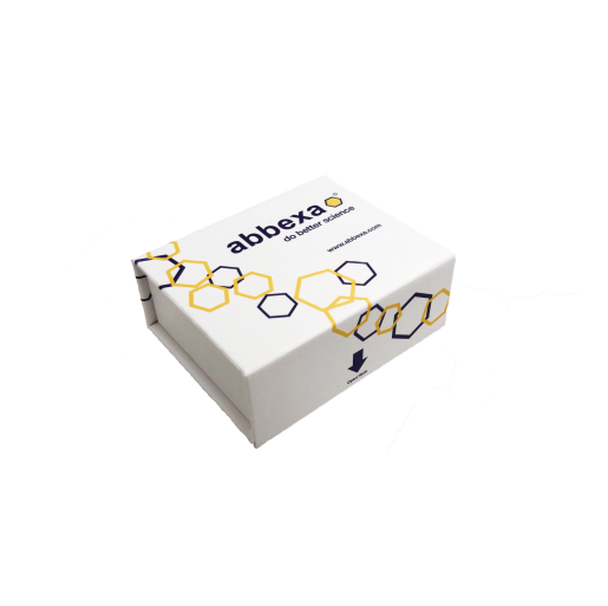Mouse Versican (VCAN) Protein | abx069663
- SKU:
- abx069663
- Availability:
- Shipped within 5-7 working days.
- Clonality:
- N/A
- Tested Applications:
- WB, SDS-PAGE
- Host:
- E. coli
- Conjugation:
- Unconjugated
- Dry Ice:
- No
Frequently bought together:
Description
Mouse Versican (VCAN) Protein. Cat# abx069663. Supplier: abbexa.
Mouse Versican (VS) is a recombinant Mouse protein produced in E. coli using Prokaryotic expression.
This protein is the immunogen for the following antibodies: abx100119
| Target | Versican (VCAN) |
| Origin | Mouse |
| Expression | Recombinant |
| Tested Applications | WB, SDS-PAGE |
| Host | E. coli |
| Conjugation | Unconjugated |
| Form | Lyophilized |
| Purity | > 90% |
| Reconstitution | Reconstitute to the original concentration in ddH2O. If further dilutions are required, dilute in 20 mM Tris, 150 mM NaCl, pH 8.0, to a concentration of 0.1-1.0 mg/ml. Do not vortex. |
| Storage | Store at 2-8 °C for up to one month. Store at -80 °C for up to one year. Avoid repeated freeze/thaw cycles. |
| UniProt Primary AC | Q62059 (UniProt, ExPASy) |
| UniProt Secondary AC | Q62058, Q9CUU0 |
| UniProt Entry Name | CSPG2_MOUSE |
| String | 10090.ENSMUSP00000105173 |
| Molecular Weight | Calculated MW: 31.6 kDa Observed MW (SDS-PAGE): 32 kDa |
| Sequence Fragment | Asn3058-Ile3299 |
| Sequence | NPC LNGGTCYPTE TSYVCTCAPG YSGDQCELDF DECHSNPCRN GATCVDGFNT FRCLCLPSYV GALCEQDTET CDYGWHKFQG QCYKYFAHRR TWDAAERECR LQGAHLTSIL SHEEQMFVNR VGHDYQWIGL NDKMFEHDFR WTDGSALQYE NWRPNQPDSF FSAGEDCVVI IWHENGQWND VPCNYHLTYT CKKGTVACGQ PPVVENAKTF GKMKPRYEIN SLIRYHCKDG FIQRHLPTI |
| Tag | N-terminal His-tag |
| Buffer | Prior to lyophilization: 20 mM Tris, 150 mM NaCl, pH 8.0, containing 1 mM EDTA, 1 mM DTT, 0.01% Sarcosyl, 5% Trehalose and Proclin-300. |
| Activity | Not tested |
| Concentration | Prior to lyophilization: 200 µg/ml |
| Availability | Shipped within 5-7 working days. |
| Note | This product is for research use only.
Not for human consumption, cosmetic, therapeutic or diagnostic use. |
1 Review
-
Accurate Quantification of Versican for Tissue Remodeling Studies
This ELISA kit provides precise, reproducible results, making it a valuable tool for studying extracellular matrix dynamics. It is simple to use and ideal for research in fibrosis, tissue repair, and cancer biology.












